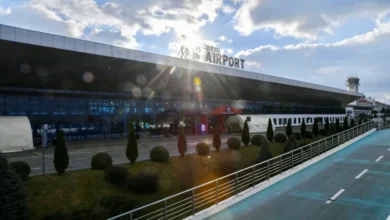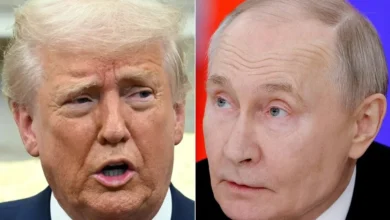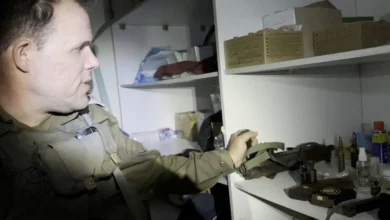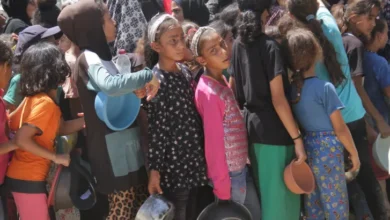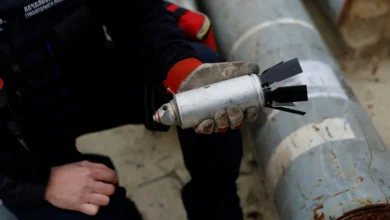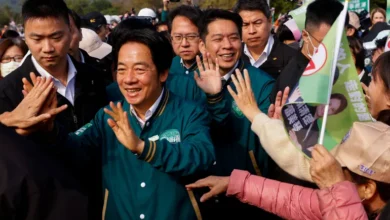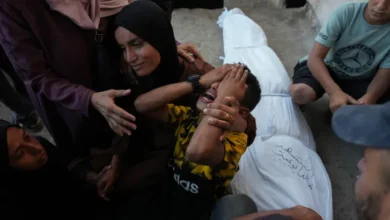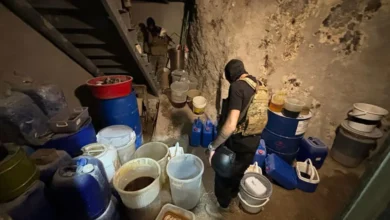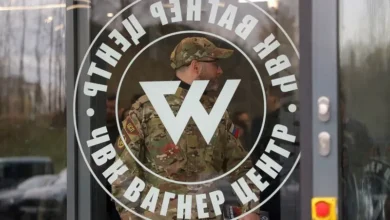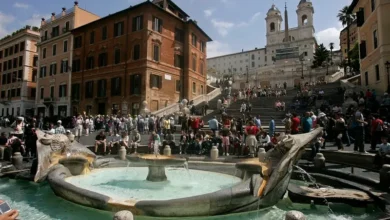A ‘new page’: World reacts to Israel-Hezbollah ceasefire
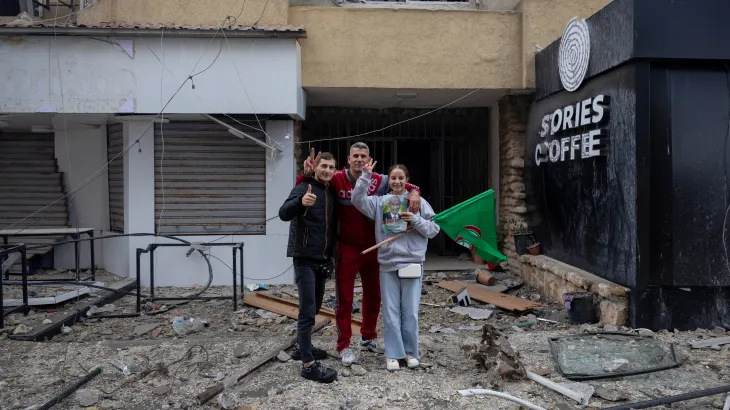
A ceasefire between Israel and the Lebanese armed group Hezbollah has taken effect after 14 months of cross-border fighting that has killed thousands of people.
It went into force at 4am (02:00 GMT) on Wednesday. Israel will “gradually withdraw” its forces from southern Lebanon over the next 60 days under the deal, with the Lebanese army joining United Nations peacekeepers in the territory.The deal has been greeted with relief in Lebanon, where thousands of people were making their way home to the south, defying a warning from the Israeli military to stay away from previously evacuated areas.
He earlier told US President Joe Biden that the ceasefire was a “fundamental step” towards restoring stability in the region.
Thanking France and the United States for their involvement, Mikati said he hoped for a “new page” after the ceasefire.
Parliament Speaker Nabih Berri called for all displaced Lebanese, including those abroad, to return home.
“Come back to your land. Your land will be stronger with your presence … You should protect the land that saw the blood of all the martyrs,” he said in a televised address.
Israel
Prime Minister Benjamin Netanyahu thanked Biden for his “involvement in securing the ceasefire agreement”, saying also that he appreciated the US president’s “understanding that Israel will maintain its freedom of action in enforcing it”.
Before Israel approved the deal, Netanyahu said the “length of the ceasefire depends on what happens in Lebanon” and it would allow Israel to “intensify” pressure on the Palestinian group Hamas and focus on the “Iranian threat”.
People in Lebanon
Thousands of Lebanese displaced by the war began the journey back to the south of the country, celebrating an end to the fighting.
“What we feel is indescribable,” said one driver. “The people have won!”
Residents returning to the south Beirut suburb of Dahiyeh hailed Hezbollah’s “victory” as they returned to their homes.
Some headed straight to the place where Hezbollah leader Hassan Nasrallah was killed.
People in Gaza
Palestinians expressed hope there would be a ceasefire in Gaza, though some feared that Israel might double down on the enclave now that its forces will be freed up from the fighting against Hezbollah.
“The situation will be worse because the pressure will be more on Gaza,” said Mamdouh Yonis, a man currently living in Khan Younis after being displaced from the southern city of Rafah.
Ahlam Abu Shalabi, a woman displaced from Gaza City, said: “They agree to a ceasefire in one place and not in the other? Have mercy on the children, the elderly and the women. We are sitting in tents and now it is winter.”
China
The Ministry of Foreign Affairs welcomed the ceasefire. “We support all efforts conducive to easing tensions and achieving peace and welcome the agreement reached by relevant parties on a ceasefire,” said ministry spokeswoman Mao Ning.
Cyprus
President Nikos Christodoulides said his country would support Lebanon “in fostering its state institutions, including the Lebanese Armed Forces”, describing the “mediating role” of the US and France as “invaluable”.
Egypt
Welcoming the agreement as “a step that could contribute to starting a de-escalation phase in the region”, the Ministry of Foreign Affairs said it “should be a prelude to stopping the Israeli aggression on Gaza”.
European Union
European Commission President Ursula von der Leyen hailed the “very encouraging news” of the ceasefire, saying it would increase Lebanon’s “internal security and stability”.
The announcement was welcome news “first and foremost for the Lebanese and Israeli people affected by the fighting”, von der Leyen said.
Lebanon, she said, would “have an opportunity to increase internal security and stability thanks to Hezbollah’s reduced influence”.
France
Foreign Minister Jean-Noel Barrot underlined his country’s role in brokering the ceasefire, saying a deal would not have been possible without France’s special relationship with its former protectorate.
“It is true that the United States [has] a privileged relationship with Israel. But with Lebanon, it’s France that has very old ties, very close ties,” Barrot said hours after the ceasefire took force.
“It would not have been possible to envisage a ceasefire in Lebanon without France being involved on the front line,” he added. “It’s a success for French diplomacy and we can be proud.”
Germany
Foreign Minister Annalena Baerbock called the deal “a ray of hope for the entire region”.
“People on both sides of the border want to live in genuine and lasting security,” she said, adding that the agreement was “a success for diplomacy”.
It said an agreement must end the war, pull Israeli forces out of Gaza, return displaced Palestinians to their homes, and achieve a deal that would see captives held in the enclave exchanged for Palestinian prisoners languishing in Israeli jails.
Hamas official Sami Abu Zuhri said the group “appreciates” Hezbollah’s right to strike a deal protecting its people, adding that it is ready to reach a ceasefire with Israel to stop the fighting in Gaza.
Speaking to the Reuters news agency, Abu Zuhri blamed the failure to reach a ceasefire in Gaza on Netanyahu, who has repeatedly accused Hamas of foiling efforts.
“Hamas showed high flexibility to reach an agreement and it is still committed to that position and is interested in reaching an agreement that ends the war in Gaza,” he said.
Iran
The Ministry of Foreign Affairs welcomed news of the end of Israel’s “aggression against Lebanon”.
Ministry spokesman Esmaeil Baghaei reaffirmed Iran’s “firm support for the Lebanese government, nation and resistance”.
Iran still sought a ceasefire in Gaza, he said, and called for the International Criminal Court (ICC) to try the “criminals of the occupying regime”, referring to Israel.
The ICC has issued arrest warrants for Netanyahu, his former Defence Minister Yoav Gallant as well as Hamas military commander Mohammed Deif.
Italy
Prime Minister Giorgia Meloni said in a statement that Italy welcomed the ceasefire, for which she said her government had been working for a long time.
Iraq
The government said the international community must act urgently to end Israel’s war in Gaza.
A Ministry of Foreign Affairs statement called for “multiplying international efforts to avoid any new escalation” along the Israel-Lebanon border, while also urging “serious, urgent steps to stop the continued massacres and violations against the Palestinian people in the Gaza Strip”.
Jordan
The Ministry of Foreign Affairs called it “an important step”, but said “Israeli aggression on Gaza” must be stopped.
Palestinian Authority
The Palestinian presidency said in a statement, “We hope that this step will contribute to stopping the violence and instability that the region is suffering from.” It highlighted the need to enforce a UN resolution for a ceasefire in the Gaza Strip.
“We call on the international community to pressure Israel to stop its criminal war in the Gaza Strip and the West Bank, and to stop all its escalatory measures against the Palestinian people,” Hussein al-Sheikh, the secretary-general of the Executive Committee of the Palestine Liberation Organization (PLO), posted on X.
Qatar
Welcoming the ceasefire, the Ministry of Foreign Affairs said it “expresses its hope that it will lead to a similar agreement to halt the ongoing war on the Gaza Strip and the Israeli assaults on the occupied West Bank”.
Turkiye
An outspoken critic of Israeli leaders since the Gaza war erupted last year, the government expressed hope that the ceasefire “will be permanent”.
The Ministry of Foreign Affairs said the international community should exert pressure on Israel to force it to “strictly comply with the ceasefire and compensate for the damage it has caused in Lebanon”.
It also urged the establishment of a “permanent and comprehensive” ceasefire in Gaza, calling on Israel to “end its aggressive policies”.
It said it was ready to give Lebanon the “necessary support for the establishment of internal peace”.
United Kingdom
Prime Minister Keir Starmer praised a “long overdue” ceasefire that would “provide some measure of relief to the civilian populations” of both Israel and Lebanon.
Calling for the agreement to be “turned into a lasting political solution in Lebanon”, Starmer promised to be at the “forefront of efforts to break the ongoing cycle of violence in pursuit of a long-term, sustainable peace in the Middle East”.
United Nations
A top official welcomed the ceasefire but warned that “considerable work lies ahead” to implement the deal. “Nothing less than the full and unwavering commitment of both parties is required,” said UN special coordinator for Lebanon, Jeanine Hennis-Plasschaert.
United States
Announcing the deal on Tuesday night, President Joe Biden said it was “designed to be a permanent cessation of hostilities.”
“Civilians on both sides will soon be able to safely return to their communities and begin to rebuild their homes, their schools, their farms, their businesses and their very lives,” Biden said.
The outgoing president described the agreement as “good news” and said the US would lead a new effort to secure a ceasefire between Israel and Hamas.
